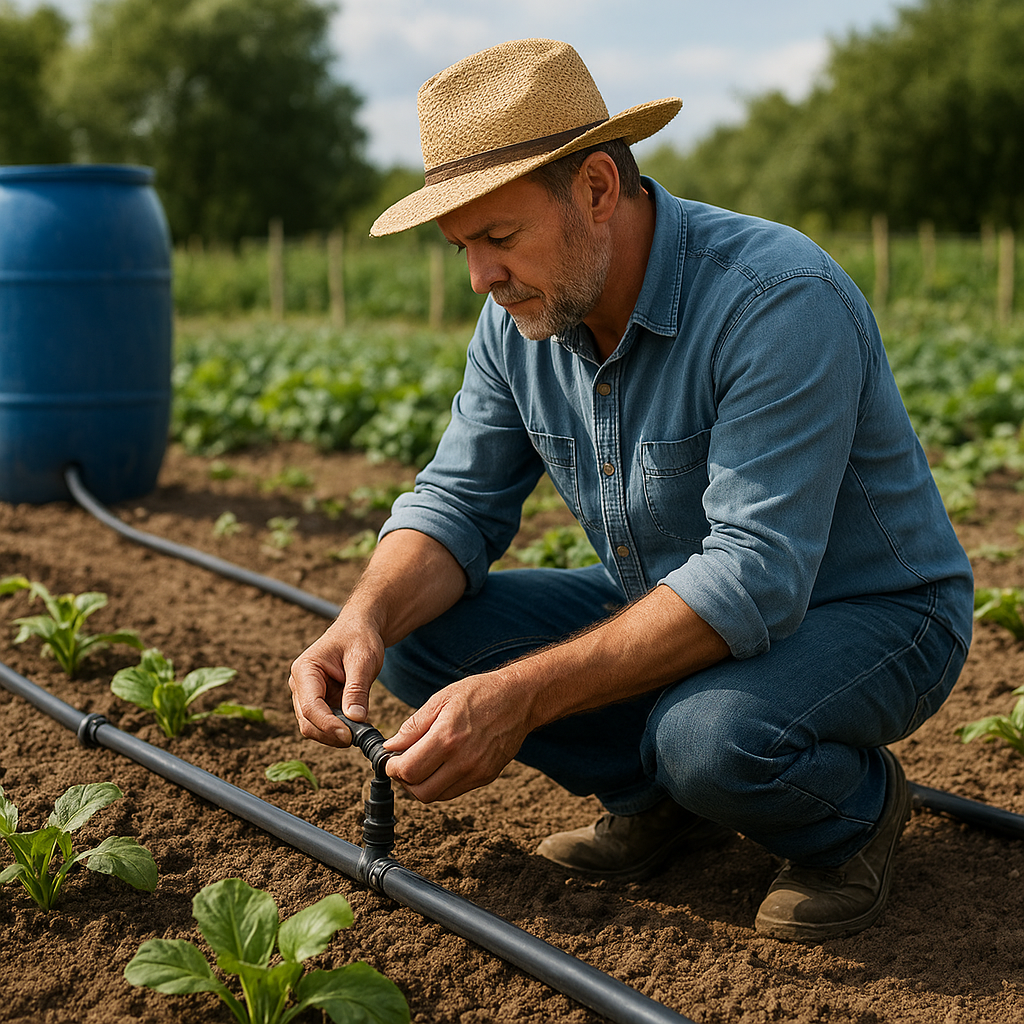Organic farming and conventional farming represent two distinct approaches to agriculture, each with its own set of practices, benefits, and challenges. As the global population continues to grow and the demand for food increases, understanding the differences between these two methods becomes crucial for consumers, farmers, and policymakers alike. This article will explore the pros and cons of organic and conventional farming, providing insights into their environmental impact, economic viability, and health implications.
Understanding Organic Farming
Organic farming is a method of agriculture that emphasizes the use of natural processes and materials to cultivate crops and raise livestock. This approach avoids synthetic fertilizers, pesticides, and genetically modified organisms (GMOs), focusing instead on sustainable practices that promote biodiversity and soil health. Organic farming is often associated with a holistic view of agriculture, where the health of the ecosystem is prioritized alongside crop production.
Pros of Organic Farming
- Environmental Benefits: Organic farming practices contribute to soil health, reduce pollution, and promote biodiversity. By avoiding synthetic chemicals, organic farmers help protect water sources and reduce the risk of chemical runoff that can harm aquatic ecosystems.
- Healthier Food Options: Many consumers choose organic products due to concerns about pesticide residues and the potential health risks associated with conventional farming methods. Organic foods are often perceived as healthier and more nutritious, although scientific studies on this topic yield mixed results.
- Animal Welfare: Organic farming standards typically require higher welfare conditions for livestock, including access to outdoor spaces and organic feed. This focus on animal welfare appeals to consumers who prioritize ethical considerations in their food choices.
- Support for Local Economies: Organic farms are often smaller and more community-oriented, contributing to local economies and promoting sustainable agricultural practices. Purchasing organic products can support local farmers and reduce the carbon footprint associated with food transportation.
Cons of Organic Farming
- Higher Costs: Organic farming can be more expensive due to the labor-intensive practices and lower yields associated with organic methods. This often translates to higher prices for consumers, which can limit access to organic products for some populations.
- Limited Availability: Organic products may not be as widely available as conventional options, particularly in certain regions. This can make it challenging for consumers to find organic foods, especially in food deserts.
- Yield Challenges: Organic farming often results in lower yields compared to conventional farming, particularly in the initial years of transitioning to organic practices. This can pose challenges for meeting the food demands of a growing population.
- Certification Process: The process of obtaining organic certification can be complex and time-consuming, deterring some farmers from pursuing organic methods. This bureaucratic hurdle can limit the growth of organic farming in certain areas.
Exploring Conventional Farming
Conventional farming, on the other hand, is characterized by the use of synthetic fertilizers, pesticides, and advanced technologies to maximize crop yields and efficiency. This method has been the dominant form of agriculture for decades, driven by the need to produce large quantities of food to feed a growing population. While conventional farming has its advantages, it also raises significant concerns regarding environmental sustainability and health.
Pros of Conventional Farming
- Higher Yields: Conventional farming techniques often result in higher crop yields, which can help meet the food demands of a growing global population. The use of synthetic fertilizers and pesticides allows farmers to produce more food on less land.
- Cost-Effectiveness: The efficiency of conventional farming can lead to lower food prices for consumers. The economies of scale achieved through large-scale farming operations can make food more affordable and accessible.
- Technological Advancements: Conventional farming benefits from ongoing research and technological innovations, such as genetically modified crops and precision agriculture. These advancements can improve crop resilience and reduce the need for chemical inputs.
- Consistency and Reliability: Conventional farming practices often provide a more consistent and reliable food supply, which is essential for food security. This reliability is particularly important in regions with high population densities.
Cons of Conventional Farming
- Environmental Impact: The use of synthetic fertilizers and pesticides can lead to soil degradation, water pollution, and loss of biodiversity. These practices can harm ecosystems and contribute to long-term environmental challenges.
- Health Concerns: There are ongoing debates about the health implications of consuming conventionally grown foods, particularly regarding pesticide residues and the potential risks associated with GMOs. Some consumers express concerns about the long-term effects of these practices on human health.
- Animal Welfare Issues: Conventional livestock farming often prioritizes efficiency over animal welfare, leading to concerns about the treatment of animals in factory farming systems. This has prompted calls for more humane practices in the industry.
- Dependence on Chemical Inputs: Conventional farming relies heavily on chemical inputs, which can create a cycle of dependency. Over time, this can lead to issues such as pesticide resistance and soil nutrient depletion.
Conclusion: Finding a Balance
The debate between organic and conventional farming is complex, with valid arguments on both sides. Organic farming offers significant environmental and health benefits, but it also faces challenges related to cost and availability. Conversely, conventional farming provides higher yields and lower prices but raises concerns about sustainability and health risks. As consumers become more aware of these issues, the demand for sustainable practices is likely to grow.
Ultimately, the future of agriculture may not lie in choosing one method over the other but rather in finding a balance that incorporates the best practices from both organic and conventional farming. By promoting sustainable practices, supporting local farmers, and encouraging innovation, it is possible to create a food system that meets the needs of the present while safeguarding the environment for future generations.




